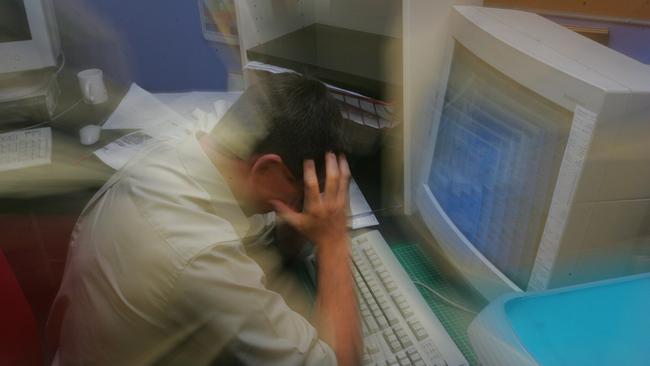Coronavirus: Mental health challenges demand vigilance

Go early. Go hard. That was the decision Australian governments took to put the nation in a strong position in its battle against COVID-19. Their decisive actions undoubtedly have saved hundreds, perhaps thousands, of lives.
Good solutions, however, sometimes can have unwanted or unforeseen consequences. We know many people are doing it tough financially, socially and emotionally.
It is a delicate balancing act to keep fighting the virus while protecting the mental wellbeing of our community. Strong action is needed to keep COVID-19 under control and to flatten the “second curve” of looming mental health conditions caused by the changes the virus has inflicted on our lives.
More services are needed to manage the rise we are beginning to see in mental health conditions. We need to scale up services across the board from peer support, help lines, online programs and telehealth consultations with GPs, psychologists and psychiatrists, through to specialist outreach and community-based and inpatient mental health services. These services should target those in need, when they need help, across the country.
Crucially, we also need to look at ways to prevent people from developing mental health conditions.
Vital public policies such as JobSeeker, JobKeeper and other economic measures need to be continued as long as possible to soften the economic impact of COVID-19. No one knows how long this crisis will last or how bad it’s going to get. Practical and financial support measures must be sustained until we are in clearer territory.
We also need to deal with the added problems of parenting stress, social isolation, workplace stress, grief and loss, as well as the compounding impacts of drought and bushfires many in the community also have experienced.
We need parenting programs that help mums, dads and kids build and strengthen positive family relationships to reduce tensions that may be mounting. Initiatives are needed to lessen the loneliness many vulnerable people are experiencing. Skills building and self-care programs that complement individuals’ natural resilience also can help us get through this crisis.
In the workplace, people need to be supported to manage the new challenges COVID-19 has delivered. Not only do employers have a legal obligation to provide a physically safe workplace but it must be mentally safe as well. Regulators need to support employers to achieve this as the challenges of establishing a safe workplace emerge. We also must help young people whose study and work pathways have been disrupted to get back on track as soon as possible.
By international standards, Australia has done well in managing and containing COVID-19, but we must not be complacent. We must remain ready to respond to challenges that are thrown at us.
The federal government’s much-anticipated second wave mental health care package is critical. The government needs to increase efforts to prevent people from developing new mental health conditions, through strategic policy decisions and evidence-based prevention programs, while increasing the breadth and availability of frontline mental health services so they can be accessed easily when needed.
Stephen Carbone is the executive director of Prevention United.


